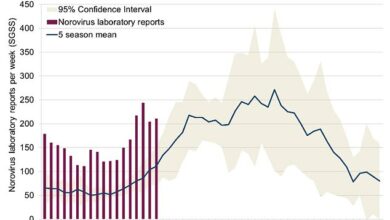Once-daily diabetes vaccination, already prescribed to thousands of people via the NHS, could cut dementia risk, experts claim




A groundbreaking diabetes jab already prescribed to thousands of NHS patients could reduce the risk of developing Alzheimer’s, promising research suggests.
Liraglutide, sold under the brand name Saxenda, is marketed to people with type 2 diabetes because it lowers blood sugar levels and promotes weight loss.
The once-daily injections could also slow cognitive decline in Alzheimer’s patients by as much as 18 percent, according to leading British experts.
The researchers said today that the findings “offer hope” and could pave the way for new treatments for dementia, meaning further research is vital.
Dr Maria Carrillo, Chief Science Officer and Chief Medical Officer at the Alzheimer’s Association, said: ‘We live in an era of unprecedented promise, with new treatments in various stages of development that could slow or possibly even prevent the cognitive decline associated with Alzheimer’s disease.

Liraglutide — sold under the brand name Saxenda — is already prescribed by the NHS to help people with type 2 diabetes manage their condition. The injections could also slow cognitive decline by as much as 18 percent after 12 months compared with a placebo, according to British experts.
‘This research offers hope that there are more possibilities to change the course of the disease.
‘The advantage of reusing drugs that have already been approved for other conditions is that data and experiences from previous research and practical use become available. We therefore already know a lot about the effectiveness in practice for other diseases and their side effects.’
Dr Sheona Scales, Director of Research at Alzheimer’s Research UK, added: ‘People with dementia urgently need treatments that target the different aspects of the condition if we are to make progress towards a cure.
‘But developing drugs for diseases like Alzheimer’s is expensive and can take many years.
‘This new study shows that people with early-stage Alzheimer’s who took liraglutide had a slower decline in memory and thinking skills and less brain shrinkage over 12 months, compared with placebo.
‘But the research was conducted on a small group of people.
Larger studies are currently underway to see whether drugs such as liraglutide are effective in slowing the progression of Alzheimer’s disease.
‘What is still unknown is the ‘how’. More research is needed into the mechanism behind liraglutide and its protective effect against dementia.’
In the study, researchers from Imperial College London followed 204 patients with mild Alzheimer’s in 24 clinics in the UK.
They all received a daily injection for a year, with half receiving a maximum of 1.8 mg of liraglutide – a standard dose for diabetes patients – and the others a placebo.
Before the study began, all patients also underwent detailed memory testing, PET scans, and MRI to evaluate brain structure and volume. These were repeated after one year.
The researchers also found that those given liraglutide had nearly 50 percent less volume loss in several brain regions, including the frontal, temporal and total gray matter.
These areas are responsible for a number of important functions that are often affected in Alzheimer’s disease, including memory, language, and decision-making.

Alzheimer’s disease is the most common cause of dementia. The disease can cause anxiety, confusion and loss of short-term memory.

It is currently thought that around 900,000 Britons suffer from the memory-robbing disorder. But scientists from University College London estimate that this number will rise to 1.7 million within two decades as people live longer. It is a 40 per cent increase on the previous forecast in 2017.
The scientists presented their data today at the Alzheimer’s Association International Conference (AAIC) in Philadelphia.
Saxenda is already available through healthcare providers as a weight loss treatment.
But it is generally only prescribed after a GP has referred you to a specialist weight loss service.
It works in a similar way to semaglutide, the active ingredient in Ozempic and Wegovy, by changing the body’s metabolism, making people feel fuller and less hungry.
This leads to them eating less and, in theory, losing weight.
However, Saxenda is one of many similar drugs that are in short supply worldwide.
Side effects include pain, diarrhea, fever, frequent urination, and trouble sleeping.
Research has shown that Novo Nordisk users lose an average of 6.4 percent of their body weight in 68 weeks.
In the UK, an estimated 944,000 people suffer from dementia. In the US, the figure is thought to be around 7 million.
Alzheimer’s affects about six out of ten people with dementia.
This is thought to be caused by a build-up of amyloid and tau in the brain, which clump together, forming plaques and tangles that make it harder for the brain to function properly.
Eventually, the brain can no longer process this damage and symptoms of dementia develop.
Memory problems, problems with thinking and reasoning, and language problems are common early symptoms of the condition, which worsen over time.
Dementia is expected to increase dramatically in the coming years, and a low-cost screening method is essential to address this challenge.
An analysis by Alzheimer’s Research UK found that 74,261 people will die from dementia in 2022, compared to 69,178 the year before, making it the biggest cause of death in the country.




